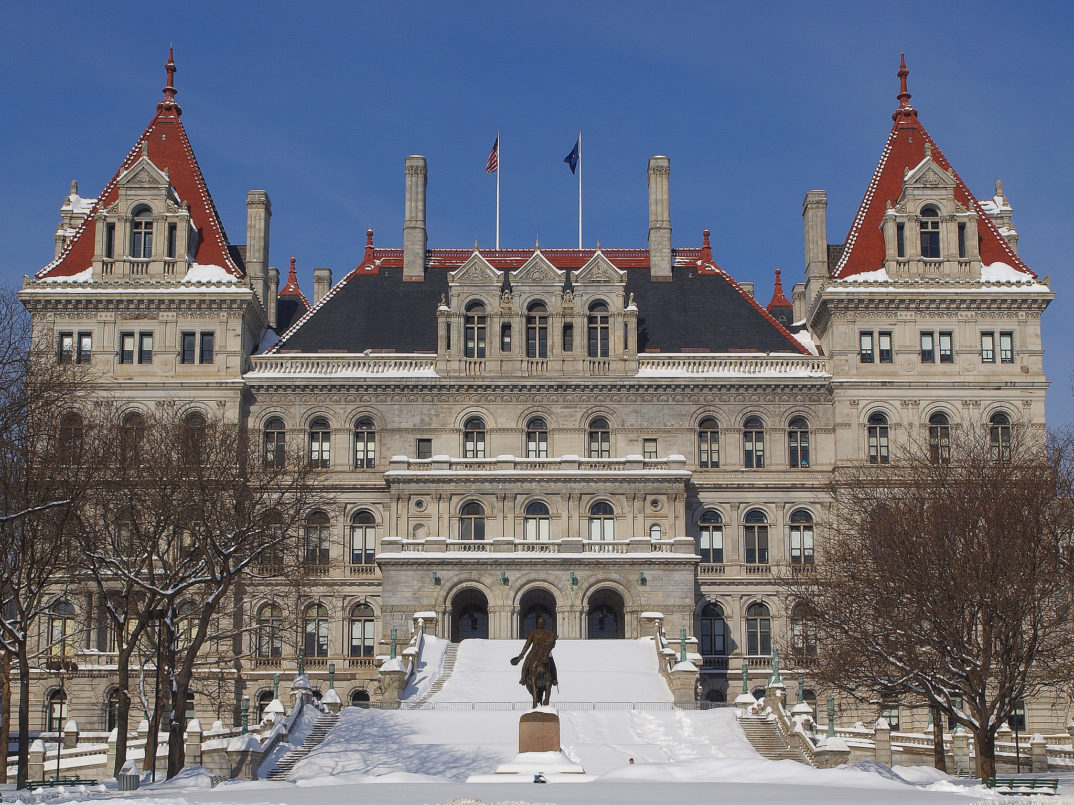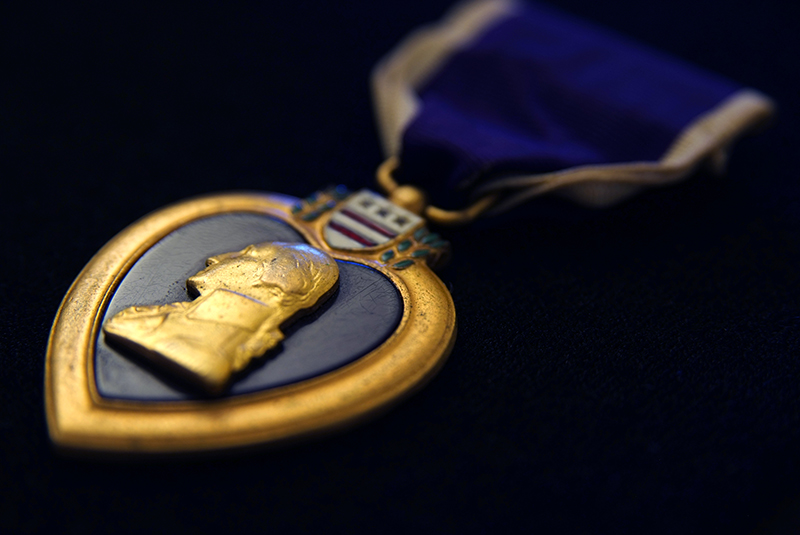In the state of New York, former public officials who have been convicted of misconduct in office can still apply for their pensions. This is due to part of the state constitution in which a public official cannot be removed from the pension system once they are a part of it. As detailed in an op-ed in the New York Times, many legislators and people have questioned whether allowing prisoners to claim their pension is ethical.
From Concentration Camp to Hotel
Mamula, an island situated on the border of Montenegro and Croatia, was the site of a World War II Italian concentration camp, in which 2,300 people were imprisoned and 130 or so were killed. Now, the Montenegrin government has agreed to a project to transform the island into a resort – a stark contrast to the fate of other concentration camps across Europe, which largely remain empty or act as memorial museums.
The Cancer Stigma in Obituaries
Many people were shocked earlier this month when both musician David Bowie and actor Alan Rickman, both 69, died of cancer. Neither obituary stated the type of cancer they died from, as the families chose to keep that information private. However, experts say not disclosing the type of cancer could be detrimental.
A Right to Review
The Supreme Court ruled yesterday that minors convicted of murder and sentenced to life imprisonment have a right to argue that they be released from prison. This 2012 decision was ruled to apply retroactively, as it was considered a significant change to the law. The court ruled 6 to 3 on applying the law retroactively; the 2012 case had been decided 5 to 4.
Copyrighting Anne Frank’s Diary
On January 1, Anne Frank’s diary was published online by more than one person, despite outcry from the Anne Frank Fonds, the foundation founded by Anne’s father. The argument of the publishing academics was that more than 70 years have passed since the death of Anne Frank in Bergen-Belsen concentration camp, which sends the work into the public domain across most of Europe. However, the foundation argues that Otto Frank, as editor and publisher, held the copyright. He died in 1980, making the work still under copyright. Additionally, the translator that worked with Otto Frank on the diary, another copyright holder, is still alive.
To Be Ethical Beings: The Refugee Crisis and Europe
An opinion piece in The New York Times by Aaron James Wendland details what we owe each other – specifically, involving refugees – if we are to be ethical beings. He uses the works of Jewish philosopher and Holocaust survivor Emmanuel Levinas, whose family was killed in the Holocaust, to explain “the concrete source of of ethical relations between human beings: our ability to respond to the wants and needs of others.”
Continue reading “To Be Ethical Beings: The Refugee Crisis and Europe”
Can You Wear Medals You Didn’t Earn?
A California court ruled in favor of a ex-Marine who was wearing military medals that he did not earn. The ex-marine, Elven Joe Swisher, has the right to wear the medals, the court says, even if they were not earned during his service. This on the basis that denying him the right to wear the medals is in violation of his free speech guaranteed in the constitution.
The Ethics of “13 Hours”
Michael Bay’s new film 13 Hours: The Secret Soldiers of Benghazi was released on Friday. The film is meant to depict what happened in the infamous 2012 Benghazi attack in Libya that left an American ambassador and three other Americans dead. Benghazi has been prominent in political rhetoric since its occurrence. Since it only happened less than four years ago, and is still being investigated, whether or not this movie is ethical is in question.
State-Sponsored Gambling
An opinion piece on CNN calls into question the ethics and morality of the lottery. The numbers to the biggest Powerball lottery pot ever were announced on January 13, and thus far three people have claimed winning tickets to the $1.5 billion jackpot. Although those people are likely very happy about the lottery system, it is possible that the lottery is actually bad for society.
Seizure and the Swiss
Swiss officials are defending their practice of seizing the assets of asylum seekers entering Switzerland who carry assets greater in value than 900 euro (1000 USD). The controversial new law is designed to assist the country is paying for their stay. Denmark is currently debating a similar law, and the laws have received international criticism.
Ethical Tipping
It’s a well-known fact that servers make below minimum wage, with the assumption being that the difference will be made up for in tips from their tables. However, if one server happens to have a slow or lower-paying section one night, he or she can end up assisting others, yet never see any return for the help. This begs the question: is there a fairer and more ethical way to tip than simply keeping what your tables give you?
Where You Should Go On Vacation
Ethical Traveler has just released their top 10 best ethical travel destinations for 2016. Each year, they rank ten developing countries that are the most forward thinking in terms of human rights, environmental conservation, animal welfare, and supporting social welfare while also maintaining a lively tourism industry. Using these criteria, they release a list of ten developing countries that should be supported in the next year.
#OscarsSoWhite: The Academy Award Controversy
Oscar nominations have been announced, and for the second year year in a row, all the acting nominees are white. This has raised controversy, especially in the wake of the much-protested “Selma” snub last year. People have taken to Twitter to express their views with the hashtag #Oscarssowhite.
Continue reading “#OscarsSoWhite: The Academy Award Controversy”
Ethics of “Over-the-Counter” Birth Control
Birth control access has been a long debated issue in the United States. Obtaining birth control methods usually means women must go to a doctor’s office in order to obtain a prescription, which can be difficult, for financial reasons or if the hospital is religiously affiliated, for example. On January 1, Oregon’s “over-the-counter” birth control law went into effect, and .
Continue reading “Ethics of “Over-the-Counter” Birth Control”
Judged by Algorithms
The Chinese government announced in October that they are setting up a “social credit” system, designed to determine trustworthiness. Every citizen will be put into a database which uses fiscal and government information – including online purchases – to determine their trustworthiness ranking. Information in the ranking includes everything from traffic tickets to academic degrees to if women have taken birth control. Citizens currently treat it like a game, comparing their scores to others in attempts to get the highest score out of their social circle. Critics call the move “dystopian,” but this is only the latest algorithm designed to judge people without face to face interaction.
Journalistic Ethics, Sean Penn, and Rolling Stone
Rolling Stone is in hot water over Sean Penn’s interview with notorious Mexican drug lord Joaquín Guzmán Loera, also known as “El Chapo.” The interview, conducted in October and published last Saturday, has raised concerns over Penn and Rolling Stone’s approach to the interview, and whether they handled the situation in an ethical manner. Numerous people have accused the magazine and Penn of violating journalistic ethics with the interview, while they have insisted they did nothing wrong.
Continue reading “Journalistic Ethics, Sean Penn, and Rolling Stone”
Pediatricians back away from screen use guidelines
This piece originally appeared in the Providence Journal on December 9, 2015.
The American Academy of Pediatrics has long advised parents to keep children under age 2 away from video screens, and to limit older children to two hours of screen time per day. The thinking has been that children deluged with video are less likely to get the proper cognitive, social and emotional development that comes from non-video play and interaction with real human beings.
Volumes of research support the need to keep kids from becoming video sponges, regardless of whether that video comes from a television, video game or computer screen. Children who spend the most time in front of screens are generally less socially capable, less physically fit and less successful in school than their low-media peers.
That’s why it is so puzzling to see the AAP indicate it is backing away from those long-held guidelines regarding screen time and kids. An essay published in a recent AAP newsletter promises new guidelines to be released in 2016. The essay, written by three AAP doctors, points out that current AAP advice was published before the proliferation of iPads and explosion of apps aimed at young children. It goes on to argue, “In a world where screen time is becoming simply ‘time,’ our policies must evolve or become obsolete.” Another casual observation is that “media is just another environment.”
The AAP article further explains its planned updates, writing, “The public needs to know that the Academy’s advice is science-driven, not based merely on the precautionary principle.” That all sounds quite lofty. But ample, rigorous research already demonstrates that heavy screen exposure for kids links with a variety of social and cognitive difficulties. Precautionary advice is even more imperative in today’s media-saturated environment.
Beyond what can be learned from science-driven research, just check in with any second grade teacher and ask that teacher which students have the most difficult time focusing in class. Odds are those struggling students get too much screen time at home. Ask high school guidance counselors which students are most depressed and anxious, and you will find those teens are more likely to be heavy users of social media and/or video games.
It is true that children are more saturated in media than ever, and parents have a near impossible task to control and referee media absorption by their kids. As the AAP reports, almost 30 percent of children “first play with a mobile device when they are still in diapers.” Teenagers, of course, are constantly absorbed in electronic devices.
It is also true, as the AAP points out, that the screen-time guidelines have been in place for many years. So, too, have been recommendations against teens smoking cigarettes, but nobody is suggesting teen smoking is now acceptable. Commonsense guidelines should not be considered “outdated,” no matter how old they are.
The AAP is a highly respected professional organization that surely wants what is best for children. The recent AAP essay correctly points out the importance of parents monitoring kids’ media consumption, keeping technology away from mealtime and out of bedrooms, along with other solid advice. But it is not helpful to suggest that the world is now so media driven that parents must concede defeat to the media tidal wave on kids. Instead, the AAP can give parents the backbone and rationale needed to limit screen time and, indeed, just turn the devices off. To say screen time is just “time” is a surrender to an “anything goes” mentality in which tough judgments are avoided.
Media use is, of course, only one of many factors that influence a child’s overall environment. It is clear, however, that media-created worlds don’t effectively replace healthy human interaction. Every minute a child is in front of a screen reduces time for more productive activities, such as playing with others, outdoor recreation, exercise or creative play. Thus, even when kids are consuming educational video content, they are missing out on more useful, human endeavors.
When the AAP issues its formal recommendations next year, here’s hoping the Academy doesn’t take a “What’s the use?” approach, and instead, gives parents the stern warnings needed to help raise well-adjusted kids who use media sensibly.
The Fashion Industry’s New Target Market
Italian fashion company Dolce & Gabbana recently released a new line of clothing containing hijabs and abayas. People around the world who follow the fashion industry were excited about the new line, which appears to be championing inclusiveness. Muslim women have been buying high-end fashion for years – most of which either stays in closets, or is only worn under abayas – and the brand’s new line appears to be in response to the general lack of fashionable options for Muslim women that can be worn out. Other brands, such as DKNY and Tommy Hilfiger, have also expanded their collections to include pieces that appeal to the female Muslim market. The Muslim market is lucrative, as many women from oil-rich countries shop for expensive, high-end clothing, primarily shoes and handbags. This line is supposed to give more options for expression beyond shoes and bags. Forbes said that Dolce & Gabbana’s move was their “smartest move in years” from a business perspective. Numerous lines have come to set up stores in Dubai, which even hosted its first fashion week this year. Since the sociopolitical culture is currently dangerous for women, Dolce & Gabbana’s new release was considered a move toward demonstrating the potential for harmony between Muslim and Western societies.
Should Minors Stay in Adult Prisons?
In many states, minors charged with certain crimes can be tried as adults. Although some of the minors who enter the system are convicted of serious crimes, many are charged with non-violent offenses. The argument for trying minors as adults is that it ensures public safety – however, research shows the opposite. In Jessica Lahey’s article in The Atlantic, the issues with trying and housing minors as adults are laid out. Is it really ethical, and even for the societal good, to try and imprison any minor as an adult?
Federal laws prohibit the housing of juveniles alongside adult prisoners, but many states do it anyway. This housing situation causes minors to be far more likely to be sexually abused and suffer violence from inmates and staff alike. The National Inmate Survey states that 1.8% of 16 and 17 year olds imprisoned with adults have suffered sexual abuse in prison, and 75% of those cases have been victimized by staff. This information alone is enough to question the morality of imprisoning a minor as an adult. In order to comply with federal laws that say minors must be housed in a separate section than regular adult inmates, many states transfer their juvenile prisoners out of the state. This causes the minor to potentially lose access to visits from friends and family, and also contact with his or her lawyer. Losing contact or access to a lawyer – a right guaranteed in the constitution – puts the minor at risk for being unable to report any abuses and in an even more disempowered position. They also lose the emotional support provided by friends and family, which makes the prison experience easier from a psychological standpoint. This lack of contact creates psychological stress and trauma that affects minors very dramatically. Minors imprisoned in adult prisons also are unable to participate the rehabilitative programs provided in the juvenile system, which offer vocational training, counseling, and education that makes re-entering society as an adult simpler. In fact, minors who are tried and imprisoned as adults are 34 times more likely to re-offend; this begs the question of whether trying minors as adults offers any benefit to public safety at all.
Denying certain minors the services their peers receive may be unethical, as it arguably sets up a certain group for failure or selects a certain group to be more likely to suffer stress and trauma. While certain minors commit very serious crimes that warrant consideration, non-violent offenders who are tried as adults should be allowed the same services as their peers, and offered a chance at rehabilitation. The juvenile justice system was created for a reason, and therefore should be utilized in the vast majority of circumstances.
Mein Kampf and German Censorship
Part of Post-World War II policy in Germany was to ban Nazi propaganda and symbols from being displayed. This includes propaganda from the Nazi regime that we commonly see in museums or is shown in history classes. While I found German Holocaust and history museums to be largely well-done and factual despite the restrictions, containing acknowledgment of wrongdoing, one has to wonder whether the ban may actually go too far and be detrimental to education. History has a tendency to repeat itself, and the accepted way to prevent this repetition is to educate the next generations about the past. Germany’s policy is now confronted with that educational and moral dilemma over Nazi texts from an academic perspective.
Same-Sex Marriage: A Libertarian Perspective
The dust is just now beginning to settle on same-sex marriage in the United States, since the Supreme Court’s recent ruling in Obergefell v. Hodges established the unconstitutionality of state-level bans on such marriages. Though the law of the land has been established, all the legal and sociocultural effects remain to be seen (for example, can elected officials receive a religious exemption from performing certain job-related duties).
Is same-sex marriage a victory for freedom? It’s hard to say, and depends on who you ask. The ability to marry a partner of the same sex at the same time both expands the life possibilities for many citizens, while also bringing them into the fold of semi-coercive social norms regarding what a proper long-term romantic relationship and family look like. The Supreme Court let “love win,” but that love is now an increasingly institutionalized one.
To those who we could call “rule of law” libertarians, the most important consideration is fairness and impartiality under the law. This perspective comes down in favor of same-sex marriage for obvious reasons having to do with fairness and equal protection. End-the-state libertarians, on the other hand, strongly disapprove of government in marriage to begin with (on the grounds that it invites and normalizes the meddling of government in private affairs), and object to its expansion (even to same-sex couples) as more of a bad thing. Some in the LGBTQ community (who may or may not be libertarians or anarchists) share this concern, believing that marriage is a kind of well-meaning but ultimately pernicious encouragement towards the conventional domesticated lives they don’t actually want.
No principled libertarian objects to gay marriage for specifically moral reasons, having to do with “marriage” being reserved for the permanent bond between a man and a woman, for instance. Whether it is un-libertarian to have reservations about progressive views regarding the malleability of sexuality and family is a trickier question (certainly progressive, libertine, and conservative libertarians have basically always co-existed in libertarianism’s big tent).
Libertarians do reasonably worry that same-sex marriage will lead to the abridgment of other liberties, namely freedom of religion and freedoms of association, especially through commerce (see, for example, the fight over whether religious bakers must bake a wedding cake for a same-sex couple). However it is certainly nothing new in principle that some values in a plural society would necessarily become pitted against others. And it does not seem to be the goal of same-sex marriage proponents to use that position strategically for the purpose of dismantling other liberties, though the possibility is real and conspiracy theories abound.
Could there be other libertarianism-consistent reasons to oppose same-sex marriage? Not really. Allowing only straight marriage in order to “strengthen the nuclear family” runs afoul of the libertarian goal of making minimalist policy that is as value-neutral as possible. Even if same-sex marriage and parenting somehow did in fact weaken family life overall (it’s complicated, and family stability may matter more than gender), that would be a less important consideration for even most socially conservative libertarians than establishing state neutrality in marriage. In any case, there are relatively hands-off ways for the government to fight childhood poverty and provide opportunity to families, like properly-structured earned income tax credits and basic food support, that do not necessarily require discriminating on the basis of the biological or adoptive parents’ sexuality.
Similarly, slippery slope arguments against same-sex marriage don’t seem to be consistent with libertarianism. The threat of a slippery slope from same-sex marriage to multiple partner marriage (polygamy) is real. However, that move only seems like a pernicious slippery slope if one assumes that legally-sanctioned marriages must be between one man and one woman in the first place. Rule-of-law libertarians would likely reject that assumption.
In the end, it is not really up for debate – from a libertarian perspective – whether people of the same gender should be allowed to marry conditional on the fact that government is in the marriage business in the first place. Since marriage, in the civil-legal light, is about distributing the benefits and burdens of a particular form of citizenship, that form of citizenship should be in some strong sense available to all.
It’s a separate issue as to whether the government should require private businesses that cater to heterosexual weddings also to cater to same-sex weddings. The primary values at stake here are economic freedom versus non-discrimination, but the situation is much more narrow than the marriage question in general (which necessarily has broad and far-reaching consequences over many citizens’ whole lives). Whether a libertarian, or anyone, should trade some economic freedom in the attempted pursuit of non-discrimination is, however, a topic for another time.



















